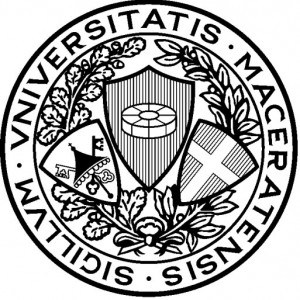Photos of university / #lmu.muenchen
East European Studies at Ludwig Maximilians University Munich offers a comprehensive interdisciplinary curriculum designed to deepen students' understanding of the historical, political, cultural, and socio-economic developments of the Eastern European region. This programme aims to prepare graduates for analytical and critical engagement with the diverse societies of Eastern Europe, fostering language proficiency and regional expertise. The programme combines rigorous academic coursework with practical insights into contemporary issues affecting Eastern Europe, including topics such as regional history, international relations, integration processes, and economic development. Students have the opportunity to study relevant languages such as Polish, Czech, Hungarian, Romanian, or Russian, facilitating direct communication and cultural understanding. The curriculum also emphasizes comparative analyses with Western European countries, enabling students to grasp the broader context of regional differences and similarities. Through a mix of lectures, seminars, and project work, students develop skills in research, analysis, and presentation, preparing them for careers in academia, diplomacy, international organizations, journalism, and other fields requiring regional expertise. The programme encourages mobility and intercultural exchange, often including opportunities for semester abroad programs in partner universities across Eastern Europe. Graduates of East European Studies will possess a nuanced understanding of the complex historical trajectories and contemporary challenges faced by Eastern European countries, empowering them to contribute meaningfully to international dialogue, policy development, and intercultural understanding. The programme is ideal for students passionate about the region who seek a career involving regional expertise, language skills, and an interdisciplinary approach to societal issues.
Educational organisation
EES has a coordinator, a selection committee, a curriculum committee, and a board of directors. The programme consists of four semesters. In each semester, you will carry out research and learn skills. In semester one, you will attend compulsory courses on evolution, ecology, and systematics. In semesters two and three, you will still have some compulsory courses, but you will be able to choose most of your courses. Although you will be able to choose for yourself which of the three main subjects you want as your specialisation, you will still be required to take a minimum number of courses in the other two main subjects. In semester four, you will write your Master's thesis.Study abroad unit(s)
The EES programme collaborates with the University of Groningen (Netherlands), the University of Uppsala (Sweden), and the University of Montpellier (France). Students are encouraged to visit these universities or other universities to attend courses or to carry out a research project. More than 89 optional exchange possibilities are offered around the world.Internships
Research courses are part of the regular programme. Research courses could be lab courses, field work, or computational biology courses.Forms of assessment
Students are graded in a variety of activities such as presentations, reports, exams, and the Master's thesis.Course objectives
After completion of a Master's degree, students may pursue an individual doctoral research project or a doctorate in one of the Faculty of Biology graduate schools.Graduates have learned many techniques and approaches that are used in research. These could include laboratory techniques, field experiments, use of natural history collections, mathematical modelling, statistical analyses, and modern genetic methods.
Students will also have obtained further key qualifications:
- ability to investigate, evaluate, summarise, and structure knowledge and information
- general overview of relevant areas of information concerning their specific field of study
- network thinking
- ability to transfer knowledge and successfully apply it to other situations
- language and IT competencies
Language requirements
Instruction and research will be carried out in English. Sufficient knowledge of English is required. To be admitted to the EES programme, we require a TOEFL test (with a score of 550 in a written test, 213 in a computer-based test ,or 79 in an Internet-based test), an IELTS test (minimum score 6.0 with no part of the test less than 5.0), a Cambridge Certificate in Advanced English (minimum score A or B), or a Certificate of Proficiency in English (minimum score A or B).Academic requirements
The formal requirement for enrolment in a graduate programme leading to a Master's degree is a three-year Bachelor's degree.The EES Master's programme has a selection procedure. First, candidates submit an application. Two members of the selection committee review the application and decide whether the candidate will be invited for a (telephone or Skype) interview. At the interview, two members of the selection committee will be present. After the interview, the selection committee decides whether the candidate will be accepted into the programme.
Please see: http://www.ees.bio.lmu.de/application/index.html
Enrolment fees
Approx. 120 EUR per semester. The fee includes a semester ticket covering public transport in the Munich metropolitan area.Costs of living
Living costs (including accommodation and health insurance) in Munich range from 800 to 1,000 EUR per month.Job opportunities
Part-time jobs in various working groups are often offered.Arrival support
Although students are responsible for planning far in advance and obtaining their own visas, etc., we make every effort to help our students during a two-week orientation session that we organise before the start of the winter semester. We require all entering students to attend this orientation session.Services and support for international students
The International Office offers a support and integration programme to assist international students, doctoral students, and postdocs at LMU:http://www.en.uni-muenchen.de/about_lmu/contact/int_office/index.html
Accommodation
Accommodation is available through the student services office or on the private market. Rent for a single room in a student residence is approx. 400 EUR.See: http://www.studentenwerk-muenchen.de








